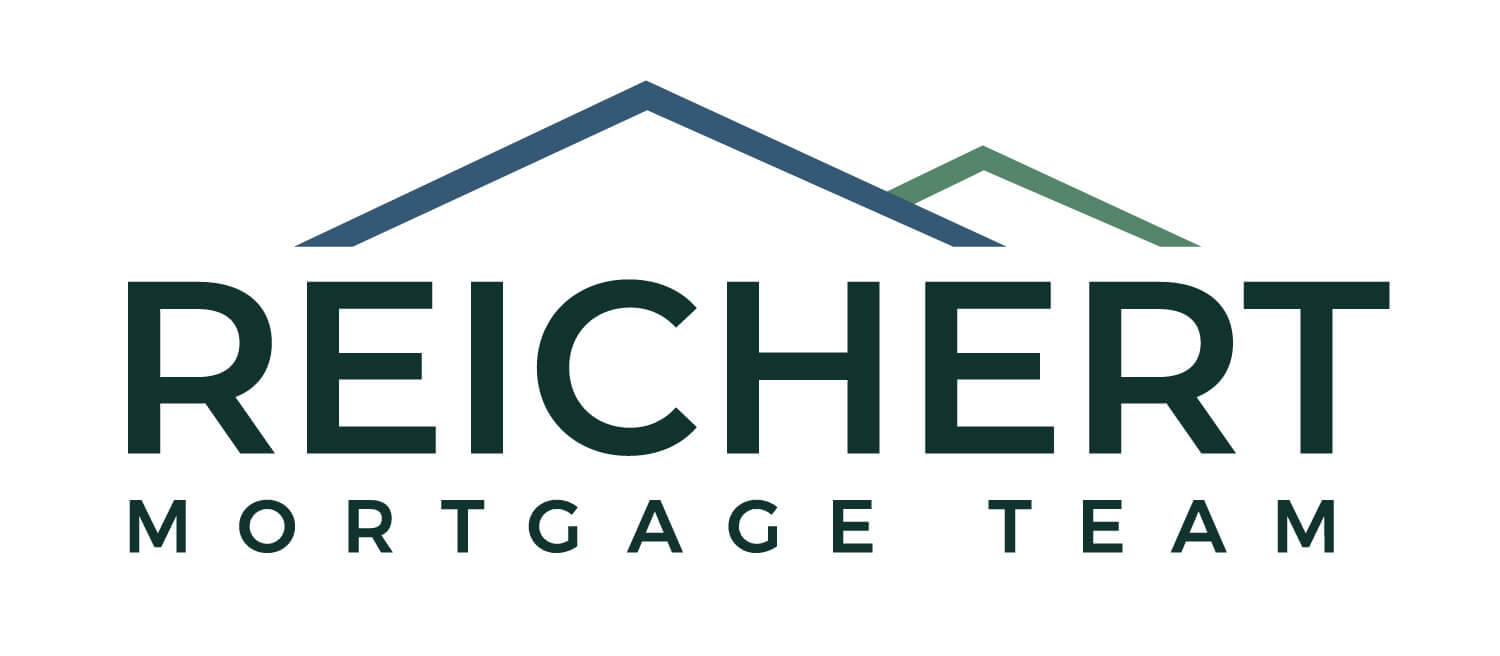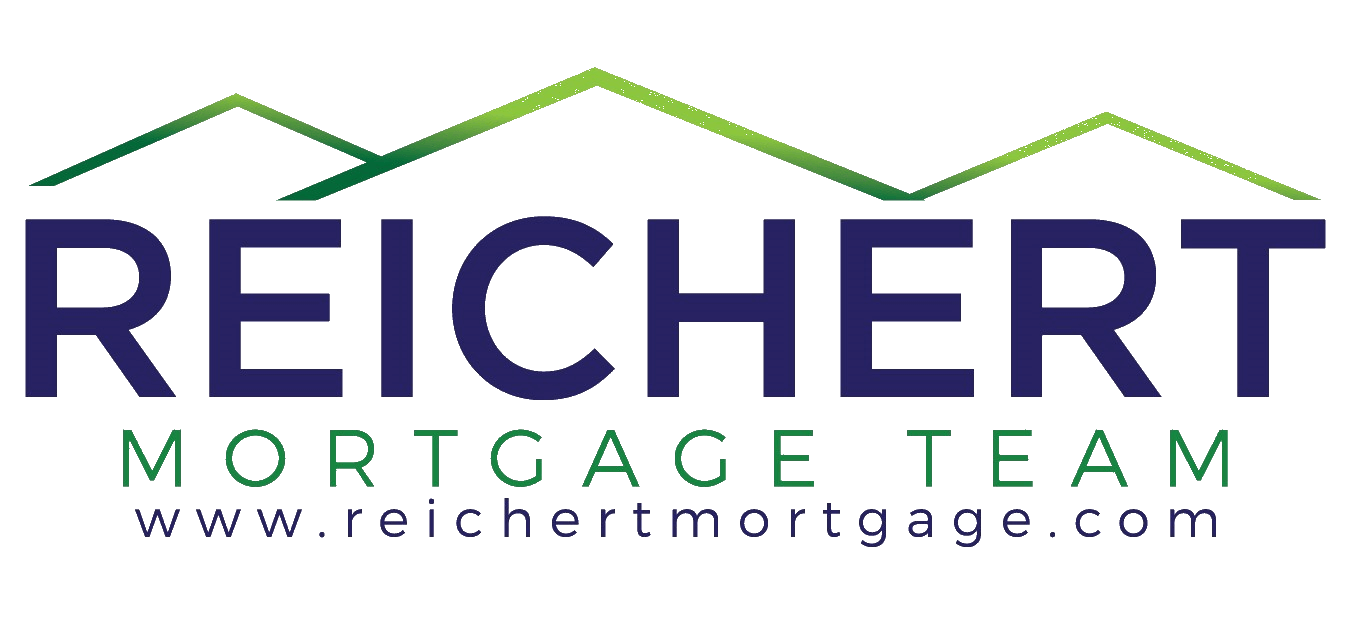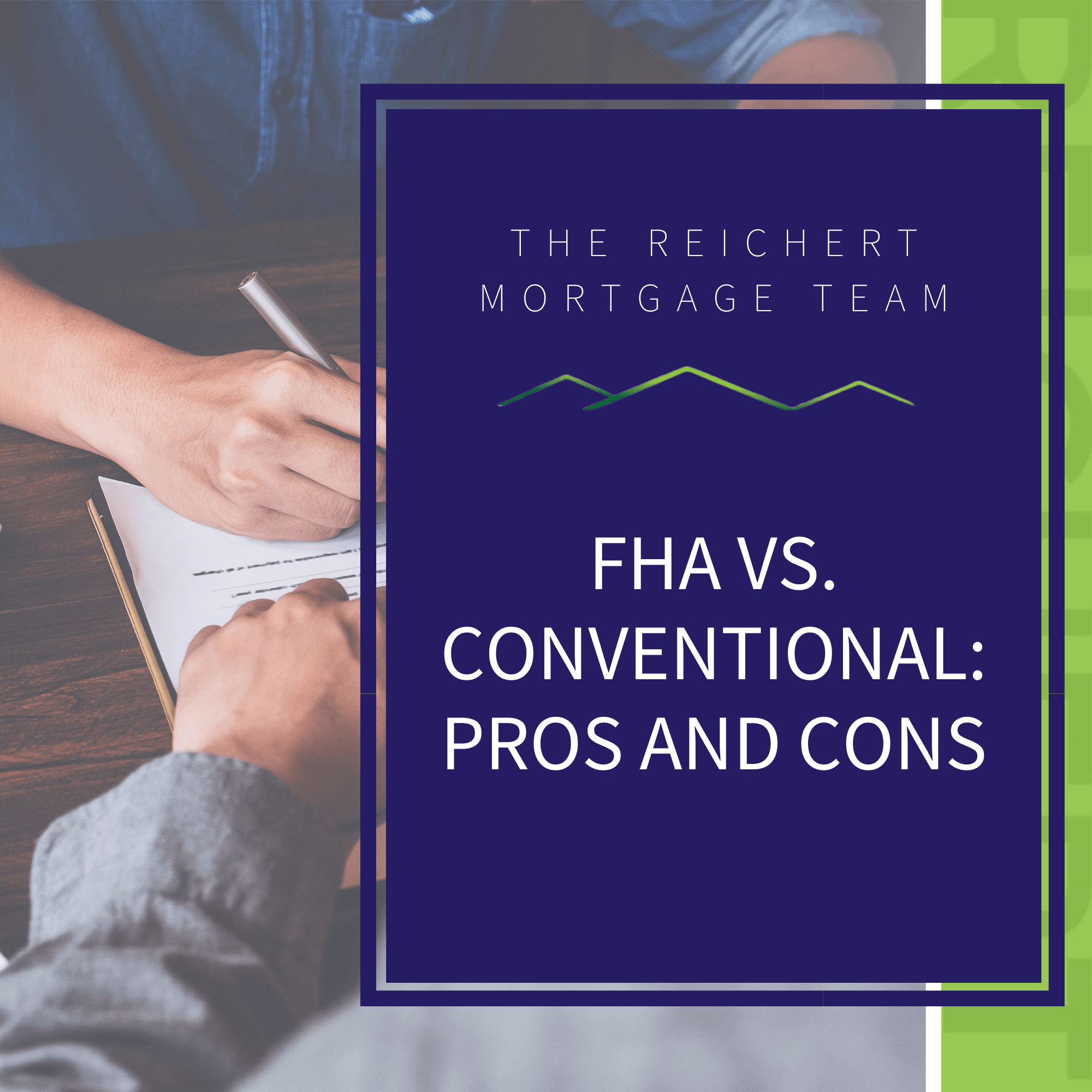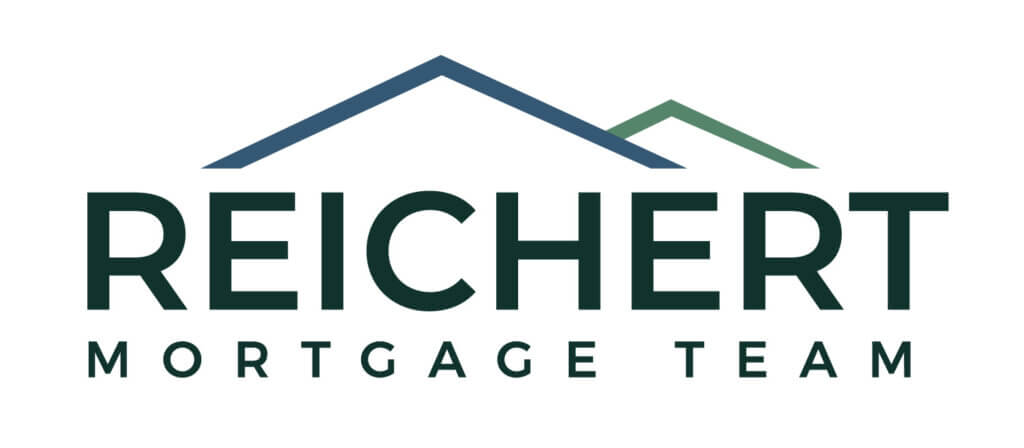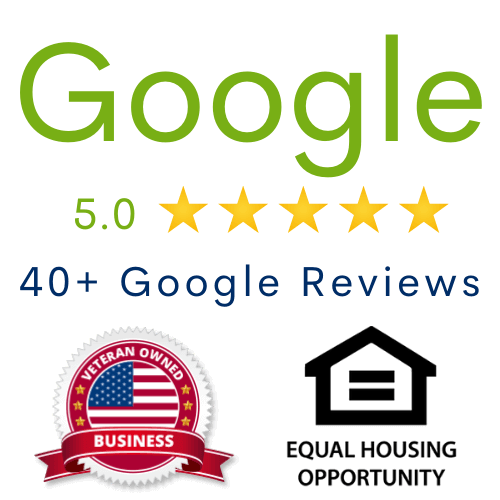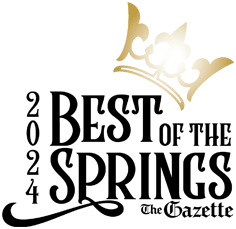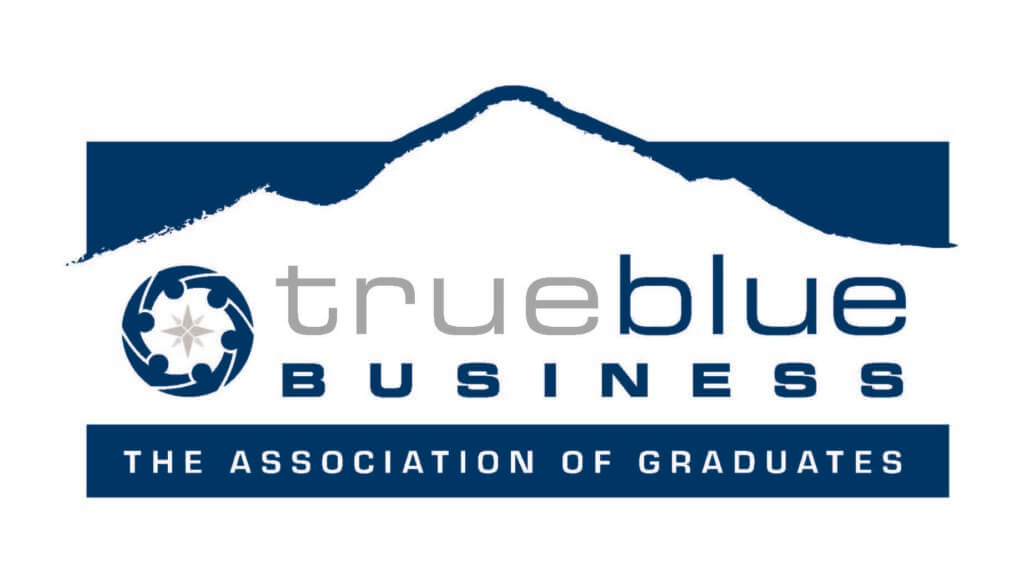If you’re looking to buy a home, one of the first decisions you’ll need to make is what home loan program to apply for. You can start shopping for a house before getting pre-approved, but sellers are less likely to take your offer seriously. This can cause you to miss out on the home of your dreams.
In this blog, we’ll discuss the two most popular types of home loans: FHA and conventional. Both have their own benefits and disadvantages. FHA loans, for example, can be great for first-time homebuyers due to their low down-payment requirements and flexibility on credit scores. They may cost more over time, however.
Your Colorado Springs mortgage experts at the Reichert Mortgage Team are here to help you understand the key differences between FHA vs. conventional loans. When you’re ready, we’ll also make the mortgage application process easy and stress-free.
What is an FHA Loan?
One type of home loan available to potential homeowners is an FHA home loan. FHA stands for the Federal Housing Administration, and these loans are insured by the federal government. This insurance protects lenders in the event that a borrower defaults on their loan, and it also allows them to offer loans with lower down payments and more flexible credit requirements.
FHA home loans can be used to purchase both single-family homes and multi-unit properties, and they are available with fixed-rate or adjustable-rate terms. For many potential homeowners and first-time buyers, FHA home loans offer an accessible and affordable financing option.
What is a Conventional Loan?

A conventional home loan is a mortgage that is not backed by the government. These loans are available from private lenders, such as banks and credit unions, and can be used to purchase both single-family homes and multi-unit properties. Conventional loans typically have fixed interest rates and terms of 15, 20, or 30 years.
Conventional loans still need to follow the guidelines established in Fannie Mae and Freddie Mac, but typically have stricter requirements on things like credit score and debt-to-income ratio. In addition, conventional loans are not restricted by location like some government-backed programs, so they can be used to purchase property in any area. For these reasons, conventional home loans are a popular choice for many home buyers.
FHA Loans: Pros and Cons
A government-backed FHA mortgage can help make buying a home more affordable for people with lower incomes and credit scores. But there are also some downsides to FHA loans to consider before you apply.
Here’s a look at some of the pros and cons of FHA loans.
Pros:
– Low down payment requirements. You can qualify for an FHA loan with a down payment as low as 3.5%.
– More lenient credit score requirements. You can qualify for an FHA loan with a credit score as low as 580, or even 500 if you put 10% down.
– More lenient income requirements. There are no minimum income requirements for FHA loans, so even if you’re unemployed or have a low income, you may still qualify.
– Can be used to finance a home renovation. If you’re planning to make repairs or renovations to your home, you can finance them with an FHA loan.
– No prepayment penalties. You’re free to make extra payments or pay off your loan early without being charged a penalty.
Cons:
– Mortgage insurance premiums. All FHA loans require the borrower to pay two types of mortgage insurance premiums: an up-front premium and an annual premium. The up-front premium can be rolled into the loan amount, and the annual premium is typically divided into 12 monthly payments.
– Limited choice of lenders. Not all lenders offer FHA loans, so you may have to shop around to find one that does.
– Lower loan limits in some areas. The maximum loan amount you can qualify for will depend on the housing market in your area. In some markets, FHA loans are not available for homes above a certain price point.
– You may have to pay an appraisal fee. The FHA requires all borrowers to have their homes appraised by a licensed appraiser. This can cost around $500.
– More restrictions on what the loan can be used for. The FHA requires borrowers to be purchasing a primary residence and has restrictions on buying flipped homes.
The Bottom Line
FHA loans can be a good option for first-time homebuyers with bad credit or limited savings for a down payment. But there are some downsides too. Make sure you understand all the pros and cons of an FHA loan before applying.
Conventional Loans: Pros and Cons
Conventional loans are the most popular type of mortgage, but they’re not the right choice for everyone. Here’s a look at some of the pros and cons of conventional loans.
Pros:
– You can get a lower interest rate. If you have good credit, you can qualify for a conventional loan with a lower interest rate than you could with an FHA loan.
– You can avoid mortgage insurance. If you put down 20% or more when you buy your home, you can avoid paying private mortgage insurance (PMI).
– You can get a conventional loan with a variety of terms. Conventional loans are available with fixed-rate and adjustable-rate terms of 15, 20, 25, or 30 years.
Cons:
– You need a higher credit score. To qualify for a conventional loan with a competitive interest rate, you’ll need a credit score of 740 or above.
– You need a larger down payment. The minimum down payment for a conventional loan is 3%.
– You may have to pay PMI if you put less than 20% down. If you put down less than 20% when you buy your home, you’ll likely have to pay private mortgage insurance (PMI).
– Mortgage rates are higher for investment properties. If you’re buying an investment property, expect to pay a higher interest rate than you would for a primary residence.
The Bottom Line
Conventional loans are a good choice for borrowers with good credit and a down payment of at least 3%. But if you have less-than-perfect credit or can’t afford a large down payment, an FHA loan might be a better option.
Compare Loan Eligibility Requirements
Let’s review. Here are the specific eligibility requirements for FHA vs. conventional loans:
| Conventional Loans | FHA Loans | |
| Debt-to-Income Ratio | Up to 45% | Up to 50% |
| Credit Score | 620 (with 3% down), 600-619 (with 10% down) | 580 (with 3.5% down), 500-579 (with 10% down) |
| Down Payment | 3-20% | 3.5% |
| Loan Limits | No limit | $331,760 (for 1-4 unit properties in most counties), higher in expensive areas |
| Mortgage Insurance Requirements | Mortgage insurance is required if you make a down payment of less than 20% | Mortgage insurance is required for the life of the loan |
Find the Right Loan Program with the Reichert Mortgage Team
At the Reichert Mortgage Team, we have access to the best loan programs nationwide, including FHA, conventional, and VA loans. We’ll get to know you and help you choose the best program for your financial situation. For some families, FHA loans allow them to purchase a home that may have seemed out of reach. Others will be able to get a better rate with a conventional loan. If you’d like transparent and helpful guidance on choosing a home loan, contact the Reichert Mortgage Team today. We’ll help you finance the home of your dreams.
